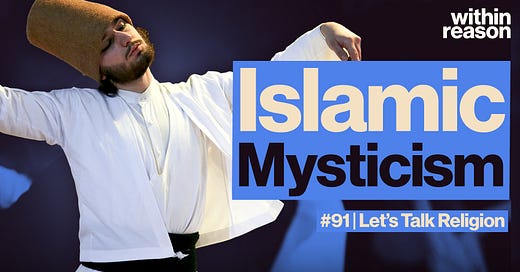On the banks of the Tigris River in the 922 AD, the Persian mystic Mansour al-Hallaj was punched, lashed, and then decapitated or hanged, before his body was doused in oil and set alight, and its ashes thrown into the river.
Al-Hallaj was a practitioner of Sufism, which can be broadly thought of as the mystical tradition within Islam. Religious mystics typically seek spiritual unity with the transcendent, engaging in meditative and trance-like behaviours in an attempt to perceive the imminence of God as an experience.
For Sufis, this may involve dhikr, or “remembrance” (repeating phrases or prayers in succession to keep God on the mind), perhaps alongside sama’—“listening” (singing or using instruments)—to induce the cherished state of wajd, or religious ecstasy.
Al-Hallaj famously achieved wajd in the 10th Century, and cried out the words, “anā l-Ḥaqq,” which mean, “I am the truth”. Already sounding as though he has taken a leaf out of Jesus’ book1, it is important to know that al-Haqq, “the Truth,” is also one of the names which God gives himself in the Qur’an.
Even amongst other Sufis, this was therefore an extremely contentious exclamation, which saw al-Hallaj accused of blasphemy by many. This particular statement was not the single cause of his eventual execution, but it cemented al-Hallaj’s reputation for the rest of history, and is indicative of why mystical epistemology can be controversial within Islam.
—
What is Sufism? Why is it controversial? Today I’m joined by Filip Holm, of the YouTube channel Let’s Talk Religion, to find out.













